It’s not just about the adults…children have feelings too

It has emerged over the weekend that an owner of a UK sperm bank may have biologically fathered up to 600 children. One of his biological children has suggested the number may even be as high as one thousand children!
Bertold Wiesner ran a controversial sperm clinic with his wife Mary until he died in 1972. Since he was the one that found the donors for the clinic it is possible he didn’t tell his wife and she believed the donations were coming from a lot of different men. Research shows Wiesner regularly made donations from the early 1940s until the mid-1960s.
The actual numbers of children born is guesswork, since most of the medical records are now destroyed. The majority of the children that he fathered will probably never know he was their father, nor who their siblings are. Many may not even know they were the product of donor conception as it was, and often remains, a well-kept secret from the children themselves. The whole process has always been shrouded in a cloak of secrecy and the truth may never come to light for those directly affected by this man’s actions and those of others like him.
It is likely that more such stories will continue to come to light. In the 1970s and 1980s, doctors advised couples receiving treatment that there was no need to tell. Thus the biological origins of tens of thousands of children have been kept secret, and lost from medical records.
Although this particular news story is based on actions taken decades ago, it illustrates the potential harm that one unscrupulous person can inflict on others. It also illustrates once again the need for strong regulations and oversight for the businesses that help infertile couples become parents.
In theory, this should not happen again in the UK. We have regulations, overseen by the Human Fertilisation and Embryology Authority (HFEA), which limit the number of families created using gametes from one donor. The number of families must not exceed ten, although there is no limit on the number of children within each family – and this limit is being reviewed by the HFEA.
Donor anonymity was removed in 2005, so now donor-conceived people born after this date can obtain some information about the identity of their biological father – or mother – when they reach the age of 18. For those born before 2005, the amount of information they receive will depend on their age, the information provided by the donor and whether their donor has re-registered after 2005. Parents can also apply for non-identifying donor information of their donor conceived genetic siblings
But that is not the full story. Even now, children can only find out about their origins if the parents who brought them up tell them that they were donor conceived. Many parents of donor conceived children choose not to tell them about their genetic origins. It is often kept a secret and many children still go through life not knowing who their real biological father is (or mother, for egg donation).
This is an issue that has significant ramifications for both the health of women (because egg harvesting is an invasive and dangerous process and women are being induced with ever larger sums of money to incur these risks) and for the welfare of potentially thousands of children.
The HFEA estimates that around 2,000 babies are born here every year using donated sperm, eggs or embryos. These numbers will increase now that the HFEA is on a drive to recruit higher numbers of sperm and egg donors. Last week the permitted payments to egg and sperm donors were increased significantly. Egg donors will receive a fixed sum of £750 per cycle of donation, including expenses, although donors who incur particularly high expenses for travelling will receive more. Sperm donors will receive a fixed sum of £35 per visit. By providing a sum per visit, sperm donors could earn on average £525 instead of the previous £250, because they typically donate on 15 separate occasions, an HFEA spokesman explained. This figure would obviously rise if sperm donors donate more often. The extra money now on offer is already said to have led to a five-fold increase in women approaching clinics to donate their eggs to infertile couples.
Is this a private family matter, or are there wider public interests at stake? What kind of information might donor-conceived people and their parents need about their genetic origin? What interests do donors have in receiving information about their ‘children’?
Donor conceived adults are increasingly speaking out about the profound effect that the loss of their biological heritage has on them, such as those who have brought the media stories to our attention this weekend. Their voices deserve to be heard, not just the voices of those who are infertile, or those who are donors, or indeed, those who are deciding on all their futures (like the HFEA).
The Independent last week reported on the devastating impact that secrecy in donation can have on people, as illustrated by the case of Rachel Pepa. Pepa lives with her partner and three-year-old son, in Leicester and describes how she only found out as an adult that the man she always thought was her father, was not:
“I absolutely, categorically think I should have been told as a child – as soon as I was old enough to process the information. It is such a fundamental piece of information to have about yourself – to know who your parents are. Sometimes I get angry thinking about it.”
Joanna Rose was conceived by donor insemination over thirty years ago and says this of her conception:
“Just as infertility is grieved, because people grieve the loss of having and raising their own genetic children, so too can that loss be mirrored by not knowing or being raised by one’s own genetic parents. Indeed, for many, this loss is exacerbated when it is intentionally and institutionally created, unlike infertility…this loss has been identified by leaders in the field as having a lifelong impact.”
A new short docufilm in the US deals specifically with the emotional impact on children of sperm donors from not knowing anything about their biological fathers: Anonymous fathers day
There is also the medical impact to consider from this secrecy. Marilyn Crawshaw, national adviser to UK Donor Link – a voluntary register set up to help donors, the donor conceived and their half siblings to get in touch – said the effect on families when children discover the truth accidentally, as a result of a medical test, or when a parent dies, can be severe.
“There are big issues around medical treatment. We have had some very sad cases of people opting not to have children because they believed they had inherited a genetic disease such as Huntington’s, only to discover their biological parents were not who they thought they were.”
She continues:
“I know of cases where a donor has developed a genetic condition and not passed the details on to the HFEA. And there are cases where a child has developed an inherited condition and the parents have not thought to pass the details back so the donor could be informed.”
People have a right to know about their own history. A majority (60%) of the public agree with this according to a new survey in The Independent last week. However unless the birth certificate of those born of donor conception actually states the name of the sperm or egg donor, the secret can all too easily remain as a secret. Unless the recipient parents tell their children they are conceived this way, they will never know to search for a donor parent.
While the HFEA is embarking on a campaign to increase donors, with little apparent consideration of the long-term ethical and medical impact on children, to its credit, the Nuffield Council on Bioethics appears to have grasped the idea that actually, donation is not just about the adults, it is also about the children. It is therefore seeking views on why parents choose not to tell their children and whether the information is important. There is more about the public consultation ‘Donor conception: ethical aspects of information disclosure’ here and we encourage readers to respond to it before 15 May.
Gamete donation is unique, and should be seen as more than just a moment of donation, because it will impact several generations hence. The gametes produced now will produce children, who will have their own children – it is not just a ‘one-off’ event. It is time to listen to the children who are prepared to speak up for themselves and for future generations about something very personal and often painful, who are fighting for basic knowledge about themselves that the rest of us take for granted.

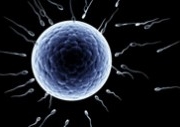
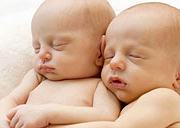
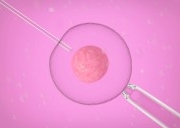


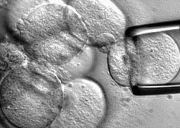
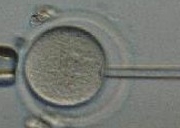

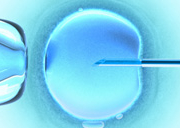


Leave a Reply
Want to join the discussion?Feel free to contribute!